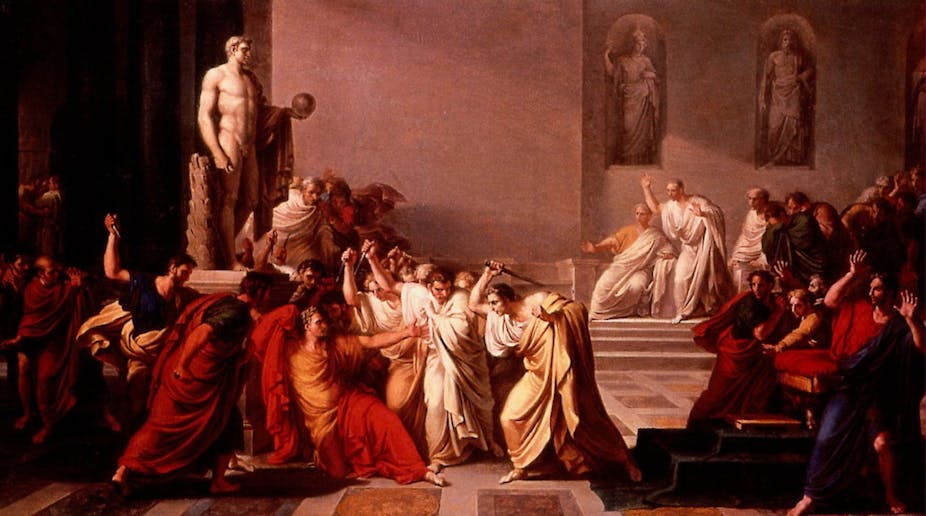Political commentary on the return of Kevin Rudd to the federal Labor leadership will overwhelmingly focus on the present. Why did Rudd refuse to challenge for so long? And what awaits him now that he has returned to power?
Kevin Rudd is no Julius Caesar. Yet the Roman Republic’s distant political culture, both more civilised and far more brutal than our own, has much to teach us about Australia’s current political turmoil.
At the height of his powers in 44 BC, the Roman dictator Gaius Julius Caesar was offered a diadem – the symbol of royalty in antiquity - by his political colleague Marcus Antonius. Caesar publicly refused, declaring “I am not Rex, but Caesar’” in a pun on the Latin word for “King”: then, as now, a relatively common personal name.
Caesar was acutely aware that monarchy was hateful to the ancient Romans whose Republic was established in 509 BC by overthrowing the line of kings who had ruled over them during the previous two and a half centuries.
Yet Caesar had another motive. Acts of this kind represented more than the zeal of his partisans, aimed at installing Caesar as a new King of Rome. The refusal of such honours was itself a recognised form of praise. The Latin term was gloria recusandi: roughly, the glory of refusal. Its enactment allowed the status embodied in the honour to be bestowed upon Caesar, while enabling him to project an image of restraint by publicly, even ostentatiously, declining to accept it. The refusal of power became a form of power in itself.

Caesar’s rise to a position where he could be offered such an honour had also been characterised by granting clementia – forgiveness or mercy – to his opponents. Although eventually seen as a virtue, clementia was a deeply problematic concept for members of the Roman elite, who valued the competition between putative equals at the heart of the Roman political system. By its very nature, the act emphasised the terrible disparity in power between the giver and recipient. Its unilateralism neutered that recipient, who was unable to prevent its grant, and marked him out as in the stronger man’s debt.
It is no wonder then that the great orator Cicero wrote of Caesar’s “treacherous clemency”. Another subject of Caesar’s mercy, Marcus Junius Brutus, repaid it by - literally - knifing him near the theatre built by one of Caesar’s recently vanquished adversaries. Brutus subsequently commemorated the assassination by issuing silver coins which depicted, on one side, his portrait and, on the other, two daggers and a pileus: the “cap of liberty” given to freed Roman slaves.
By refusing to challenge until the very end, Kevin Rudd was able to portray himself as the man demanded by both his colleagues and the Australian people. Yet as the newly restored leader of his party, Rudd should be wary of continuing to borrow, however inadvertently, from Caesar’s political arsenal.
He has now publicly declared that he will not engage in retribution against his enemies in the Labor caucus. Yet such grandiose displays of leniency may well serve to sharpen the humiliation of his defeated opponents rather than to heal old enmities.
Rudd would also do well to beware the potential repercussions of such actions, especially on the day that Australians are due to go to the polls: the 14th day of the first month of spring.
The Romans knew it by another name. It was the day before the Ides of March.

